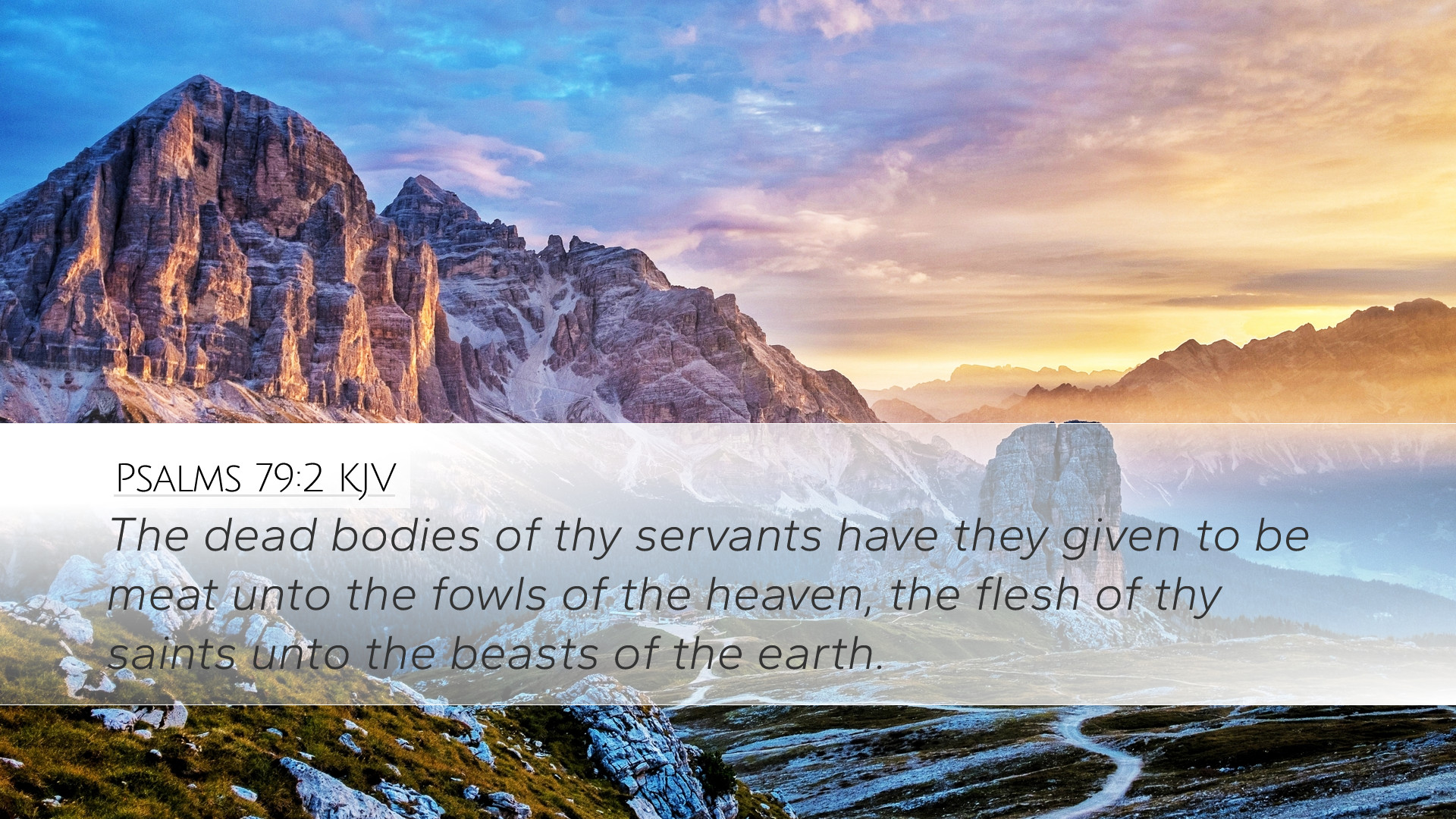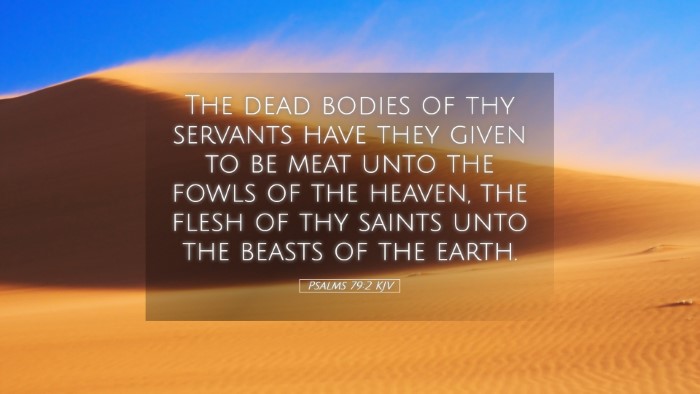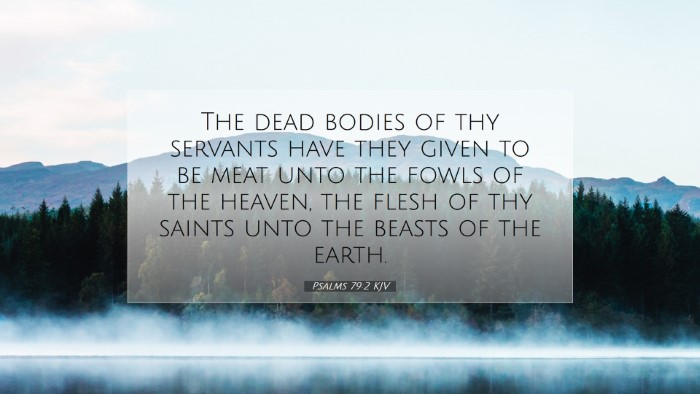Commentary on Psalms 79:2
Text of the Verse: "The dead bodies of thy servants have they given to be meat unto the fowls of the heaven, the flesh of thy saints unto the beasts of the earth."
Introduction
Psalms 79 is a poignant lament that seeks God's attention in the face of great suffering and desolation. Verse 2 specifically highlights the devastation experienced by the people of God, expressing profound grief over the desecration of the dead and a deep sense of betrayal and loss. This commentary seeks to extract insights and interpretations from esteemed public domain commentators to provide a deeper understanding of this scripture.
Matthew Henry's Insights
Matthew Henry emphasizes the severity of the calamities faced by Israel at the time of this Psalm. He notes that the reference to "the dead bodies of thy servants" signifies not just the physical loss but the spiritual implications of such death. Here are some key points from his commentary:
- The Grave Abuse: Henry highlights that the dead bodies of God’s servants being left unburied is a source of great dishonor. Burial rites in ancient cultures were of utmost importance, reflecting dignity and respect towards the deceased.
- Divine Judgment: The imagery of fowls consuming the bodies symbolizes not only foreign oppressors but also signifies the consequences of sin and divine judgment against Israel. The Psalmist cries out for vindication and for God to intervene in history.
- Distress of God's People: The emotional weight of this verse reflects a deep sorrow, portraying how the faithful suffer amidst chaos and disgrace, reinforcing the need for divine deliverance.
Albert Barnes' Analysis
Albert Barnes provides a linguistic and theological examination of the verse, emphasizing the emotional depth and historical context surrounding it. His contributions can be summarized as follows:
- Historical Context: Barnes situates this lament within the Babylonian captivity, interpreting the bodies of the saints as victims of war and strife, highlighting the brutal nature of the siege against Jerusalem.
- Moral Outcry: He asserts that this verse serves as a moral outcry. The desecration signifies not just physical death but an assault on the identity and heritage of God’s people. Such shame calls for urgent intercession.
- The Role of God's People: Barnes notes that the term "servants" implies a special relationship with God, emphasizing that their deaths are not merely statistics but heartbreak for God Himself, thus inviting a deeper understanding of divine empathy.
Adam Clarke's Commentary
Adam Clarke provides a theological reflection on this verse, encouraging a deeper exploration of its implications for the community of faith. His commentary focuses on:
- Cultural Significance: Clarke discusses the cultural context of ancient burial practices, emphasizing that leaving bodies to be eaten by birds dishonors both the individual and the community, revealing the depths of despair faced by the Israelites.
- Call to Repentance: He draws a parallel between national calamity and the need for collective repentance, suggesting that such horrific events often result from turning away from God. Clarke emphasizes the importance of returning to God amidst such turmoil.
- Hope Amidst Despair: Clarke concludes by reminding readers that even in the direst situations, God’s grace and mercy are ever-present, inviting believers to trust in divine redemption despite visible suffering.
Theological Implications
The lament encapsulated in Psalms 79:2 serves as a powerful reminder of the suffering endured by God's righteous amid the trials of life. It raises essential theological themes that are relevant for contemporary audiences, including:
- The Problem of Evil: This verse embodies the profound question of suffering and evil in the world, challenging theologians to explore God's sovereign purposes in allowing such devastation.
- The Importance of Intercession: The Psalmist's cry encourages a spirit of intercession, emphasizing the role of prayer in crises—an essential component for pastors and leaders as they navigate their congregations through trials.
- Identity and Community: The loss of life depicted in this verse symbolizes broader questions of community identity that are integral for modern faith congregations as they face societal challenges.
Conclusion
The lament expressed in Psalms 79:2 resonates deeply within the heart of those who understand the burdens of leadership, pastoral care, and theological inquiry. As we reflect on the insights offered by Henry, Barnes, and Clarke, let us remember that lamentation is not merely a farewell to the past but a gateway to hope and renewal, inviting us to seek God’s restoration and healing in times of great distress.


